
December 22, 2023
How much can I rent my car for?
As the cost of car ownership goes up, you might start thinking about the prospect of renting your car out to earn some extra cash. After all, it can be a good opportunity for people who don’t need to drive all the time or those who are considering buying an extra vehicle or two for the sole purpose of renting them out.
Before you take a first step toward starting a car sharing business, it’s good to know what your earning potential looks like so you can decide if renting out your car is worth it. There are a number of factors to consider that not only affect how much you can make, but also whether that income stream will be passive or require more effort.

5 factors affecting how much you can rent your car for
What impacts how much money you can earn renting out your car? It’s more than just supply and demand. Your car’s make and model and sharing location can affect the daily rental rate, while insurance requirements and the car sharing platform you use will play a major role in your actual earning potential. Let’s take a closer look at six key factors that come into play.
1. Different car sharing platforms
One of the biggest decisions you’ll need to make is which car sharing platform you’ll use. Each company operates differently and has a unique pricing and payout structure, and some require you to pay for services or subscriptions upfront before you can even earn a dime. Here’s an overview of the earning potential with three leading car sharing companies:
- Turo offers different earnings levels — 65% or 75% of the booking fee — based on the amount of insurance protection you purchase.
- Getaround pays 60% of the car’s daily rate. However, you will have to pay a one-time $99 Getaround Connect® setup fee and $20 for a Getaround Connect subscription to share one car. You will also pay a one-time $50 convenience fee if you choose mobile installation at onboarding.
- Avail pays car owners a flat rate of $20 or $25 per day for each day their car is borrowed, depending on the type of vehicle. Owners are also guaranteed to earn at least $50 every 7 consecutive days their car is listed, even if it doesn’t get booked and borrowed during that time.
Your time is money, too, so you should also consider how much effort each platform requires from you. For example, having to communicate with borrowers or exchange keys in-person will take your time and attention away from your work or personal life. If you’re aiming for passive income, then these are more than inconveniences — they’re road blocks.
Although both Turo and Getaround offer contactless pick-up, owners will still need to communicate with borrowers to coordinate the details. Turo even makes owners verify the driver’s identity themselves. Under Getaround’s policy, borrowers are able to return a car within a quarter mile of its pick-up location, so you may have to go an extra distance to retrieve your vehicle. Avail, on the other hand, just requires the car owner to park their car in a designated Avail parking garage and then pick it up at the same location after the listing ends. Avail handles all the details and coordination in between.
2. Make and model of your vehicle
No matter which platform you choose to share your car through, different types of vehicles have different earning potential. That’s especially true for companies like Turo, which often highlight luxury vehicles as part of their value proposition. Nicer, newer cars — even if they aren’t luxury vehicles — will likely be booked more often than their older counterparts, which also increases the owner’s earning potential.
One key thing to note: Many platforms have make, model, mileage and age restrictions that may affect your car’s rental eligibility. Avail, for example, requires all vehicles to meet the following requirements:
- Automatic transmission
- Gas-powered or hybrid engine
- Fewer than 125,000 miles
- Model year less than 10 years
- No visible damage or maintenance issues
- No open recalls
3. The number of cars you share
Every additional car you share is another opportunity to increase your bookings and, ultimately, your payout. If you’re a multi-car household that rarely uses your spare vehicles, you could easily share multiple cars at once to maximize your earnings.
Car owners may even decide they like the extra income that comes from renting out their cars and choose to build a fleet of cars for rental. This can easily become a full-fledged business instead of a side hustle. If you have the funds (or credit) to buy additional cars, you can quickly scale your earnings. Just keep in mind that income may fluctuate seasonally based on demand, but in general, the more vehicles you share, the more you’ll earn.
4. Location
Where you live — or where you share your car — plays a big part in how much you can earn. For example, tourist destinations and busy cities are hotbeds for car sharing because not all residents want to own a car and travelers may not want to use traditional rental car services. In rural areas? Not so much. To maximize your earning potential, try to share your car in a major city, like Chicago or Denver.
There’s also a bonus for city-dwelling car owners who typically pay steep parking costs: You can save that money when you share your car on certain platforms. When you list your car to be shared on Avail, for example, you’ll park your car in a designated space for free. Every day that you’re not paying for parking is more money in your pocket.
5. Insurance
Most car insurance companies aren’t fans of loaning your vehicle out as part of a commercial business. In most cases, your personal car insurance policy won’t cover your vehicle if someone rents it as part of a peer-to-peer sharing program. If you want additional coverage, you’ll probably need to purchase a commercial auto insurance policy. That can eat into your profits, especially as more insurance companies incorporate language into personal auto policies that excludes peer-to-peer car sharing from their coverage.
Some car sharing companies provide a workaround by offering insurance coverage as part of their services, but how that coverage impacts your earnings differs. Turo, for example, offers higher levels of protection at the expense of rental income. Avail’s car sharing insurance policy kicks in as soon as your vehicle enters their possession, but all car owners are still required to have collision and comprehensive coverage on their personal policy, as well as meet their state’s minimum insurance coverage requirements.
How much can I make renting out my car?
As we’ve shown, your overall earnings when renting your car out to others depend on many factors. Even though the dollar amount isn’t set in stone, you shouldn’t ignore the earning potential.
Making money by renting your car out can be a fantastic way to generate passive income and reduce the cost of car ownership. If you’re looking for a low-risk place to start, Avail is a good option since there are no out-of-pocket costs and you are guaranteed to make money (at least $50 every time your car is listed for 7 consecutive days). Avail also makes it easy for you to save through its Car Care Plan, which can help with maintenance costs while your car is listed for sharing.
Continue reading this guide to learn more about the benefits of car sharing with Avail, or get started today by signing up online or in the Avail app.
Frequently asked questions about how to make money with car sharing
How profitable is renting out your car?
Renting out your car can be a profitable side hustle if you choose the right platform, own an in-demand vehicle and have a willingness to place your car up for sharing more than you use it. You’ll also need to determine if the potential net earnings are more than what you’ll pay in additional insurance fees and maintenance costs.
What factors determine how much I can earn by renting out my car?
The amount of money you earn by sharing or renting your car to others largely varies based on your location, the make and model of your vehicle, listing duration, overall demand and any additional costs that sharing requires, such as insurance. Some companies may charge setup or maintenance fees, which can greatly affect your earnings per vehicle. And consider how much of your personal time the platform requires you to put in, physically or remotely, such as to meet drivers or set things up, as that can cut into your earnings if you’re doing a lot of the heavy lifting.
What kind of insurance coverage is provided for my car while it’s being rented out?
Avail offers car owners up to $1 million in primary liability coverage that kicks in as soon as you leave your car with Avail. Owners are required to have collision and comprehensive coverage on their personal auto insurance policy and meet their state’s minimum insurance coverage requirements to share their car through Avail.
Borrow & share
Avail makes it simple to borrow a car when you need one, or share your car with others and earn money.





